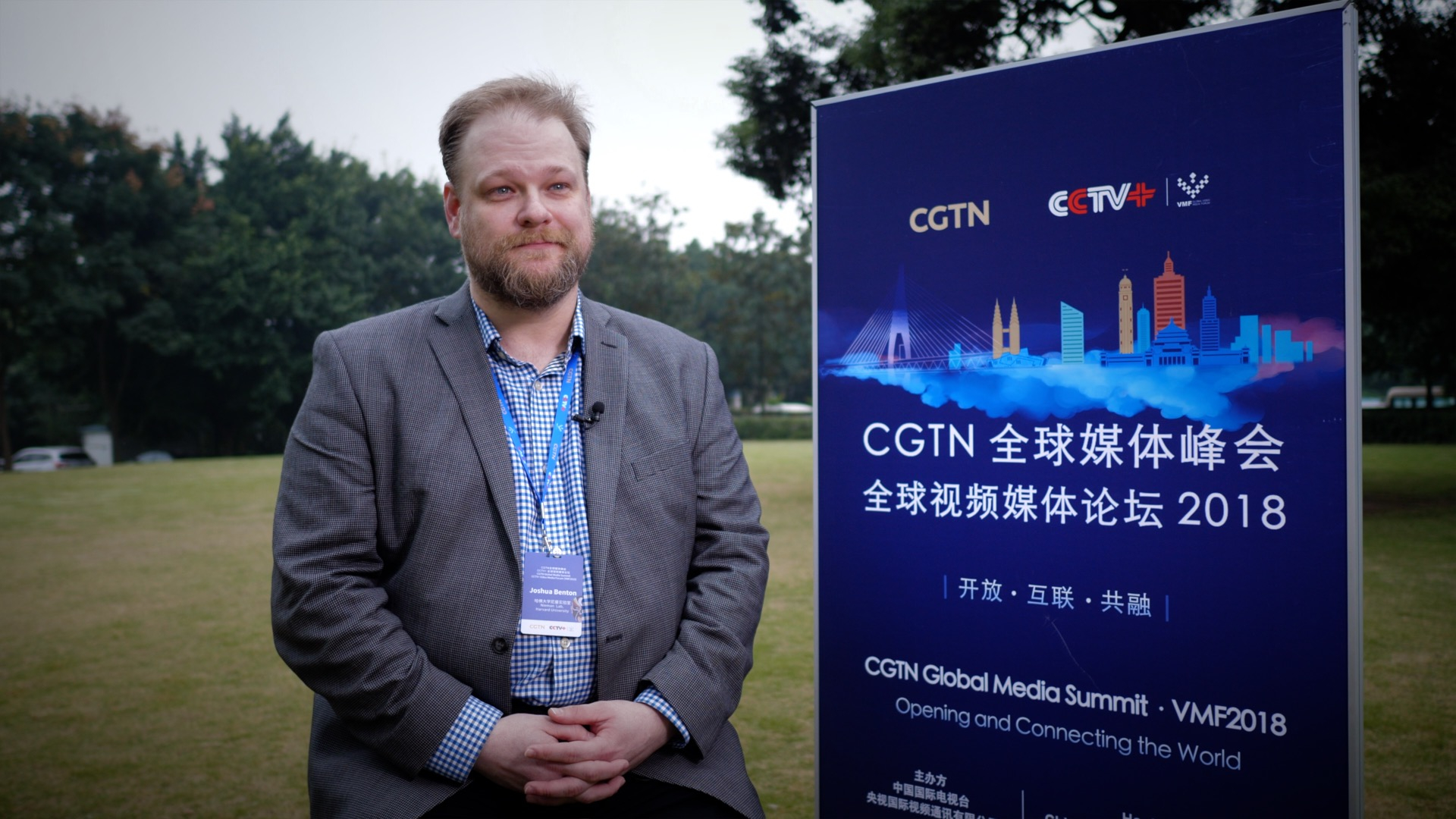
Culture
14:21, 18-Oct-2018
Journalism in the tech era: Changes and constants
Updated
14:18, 21-Oct-2018
CGTN
02:21

The world is seeing a tectonic shift in how news is covered and stories are told, owing to the rise and spread of social media platforms and a slew of disruptive technologies.
The new reality is uniting media outlets, regardless of where they're based, in their struggles to reach audiences and adjust to the fast technological development.
"Whenever I speak internationally, I'm always struck by the degree to which the same problems exist in countries as different as the United States and China," Joshua Benton, founder and director of the Nieman Journalism Lab at Harvard University told CGTN.
Benton was attending the second CGTN Global Media Summit and the 8th Video Media Forum held in southwest China's Chongqing Municipality on Tuesday and Wednesday.
Amid seemingly infinite news sources – be they amateur or professional, traditional or unorthodox – and a cutthroat competition for readership, viewership and listener base, media outlets are trying to get closer to their audience.
"Publishers have wanted to double down on creating direct connections [with their users audience], having email newsletters, having membership programs, having events, [and] other ways that the user and the publisher can have a closer connection," Benton noted.
He advised content makers to take a step forward and connect with their target audience.
"You have to go out and know who your users are, figure out how best to serve them, and gather up data about them, figure out what's the right way to target an offer at them," he advised, adding that big news companies are doing an "increasingly good job at this."
Despite the sea of changes that technology has brought to the profession, the values of what makes a good journalist remain intact.
"Can you identify an interesting story that nobody else has thought of before? Can you write? Can you structure a narrative in such a way that it is pleasing to the person you are trying to reach? Can you navigate your way through documents, through fact patterns in a way to discover what's interesting about something?"

SITEMAP
Copyright © 2018 CGTN. Beijing ICP prepared NO.16065310-3
Copyright © 2018 CGTN. Beijing ICP prepared NO.16065310-3